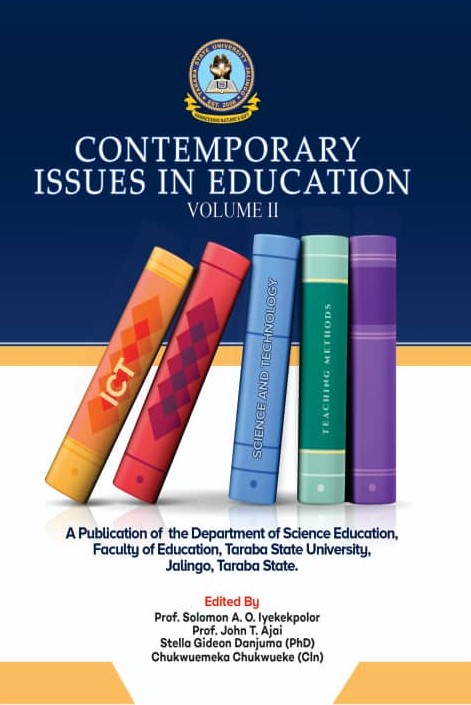Review of Basic Education Science Teachers' Assessment Practices in Nigeria
Abstract
Education can be described as the process in its entirety through which children, younger or even adults are helped to cultivate and grow their abilities, attitudes, values and other forms of behavioural attributes that represent positive value aimed at changing the individual to enable him/her contribute to the well-being of himself/herself and other members of the society and of course the society (Amadioha & Akor, 2018). This definition implies that education grows, advances and has the capability to induce a person with characteristics that would make the person function properly, and besides that, the capacity so developed are usually of value and that which could make the person to contribute positively to the development of the society that the people live in. But even if education is entire, it is broken into stages like what (FRN, 2020) enumerated to include early childhood education, basic education, secondary education, mass literacy, adult and non-formal education, science education, technical and vocational education, tertiary education and open and distance education in Nigeria and in most parts of the world. Basic education according to Kanno & Onyeachu (2015) is defined as the foundational educational level. This may also by implication be seen and perceived as the most fundamental education that is given to people. For Nwana (2002) basic education is seen as the base-line education on which all other educational advancement depends.
The basic education in this context is like the foundation of a building on which all other loads for the building come. This same foundational education from inference determines the stability of the entire educational building that anyone can ever have. Therefore, basic education is to a large extent what determines the success or failure of all other stages of education that may come on it. Hence, it becomes imperative to make this educational level functional to produce results worthy of the effort inputted by the implementers in Nigeria. Basic education in Nigeria has its roots in the original educational system put together for Nigeria by the British starting from when Reverend Thomas Birch Freeman and Mr. and Mrs. Degraft of the Wesleyan Methodist Church arrived in Nigeria precisely in Badagery and established a school, particularly a private home school (Amadioha, 2018). This basic educational process has spanned from 1842 to this present day such that it has graduated from the (3Rs), Reading, Writing and Arithmetic to the
Universal Primary Education (UPE) Programme that was on the front burner as at the time between 1955 for the Western region of Nigeria under the leadership of Pa Obafemi Awolowo, 1957 for the Eastern region under the leadership of Dr Nnamdi Azikiwe to the general UPE that resurfaced in 1976 under the leadership of General Olusegun Obasanjo and then to the present day UBE (Universal Basic Education), (Amadioha, 2016; Jeremiah & Alamina, 2017 ).

